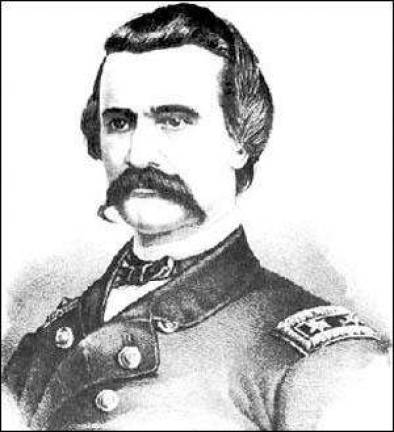A soldier's view of Memorial Day

When I was a young girl growing up in Warwick, I’m not really sure I really ever truly understood what Memorial Day meant. In my young mind, it marked a day where my mother would have us officially in white shoes for church. There would be neighborhood picnic barbecues, softball games and parades with the American Legion marching down main street. For me a veteran was my grandpa who fought in WW II and all those older men who wore military-style hats with a bunch of pins in them. As I grew older, I appreciated it as a three-day weekend with time off from school or work. Even later, when I joined what was then a peacetime Army, I failed to truly appreciate the emotional significance of this holiday. Memorial Day felt the same as Veterans Day. It was a day to thank soldiers. Being one at the time I appreciated the thanks, but I still failed to correctly realize what it meant. It was not until I actually went to war in Iraq and when fellow soldiers in my unit failed to make it back from patrol did I truly internalize the distinction. It wasn’t until then that I truly valued how these brave men and women who died serving our country deserved their own day memorializing their sacrifice. Furthermore, realizing it is not only their sacrifice that requires recognition, but also their family left behind. My best friend lost her husband in Iraq and I think a piece of her also died that day. As I’ve gained more perspective, I’ve also regarded other concepts such as citizenship in a different light. Every day we hear about court cases trying to establish or expand the boundaries as to what our rights as citizens are. As citizens, we have the right to free speech, to freedom of religion, to work where we want if we are qualified, and to own guns. It is a rare day that I hear a conversation turn to what the duties of citizenship are for those who enjoy the rights protected by it. For those who have died for their country, they took measure of this duty and sacrificed their lives for it. It is my wish this Memorial Day that you consider your duties as citizens. The duty goes beyond serving in the Armed Forces, jury duty, taxes or voting. Your duties are to each other, not some esoteric concept. Remember those who paid the ultimate sacrifice for their country in war, but also honor those others who sacrifice in other ways to make this country great - law enforcement, firefighters, teachers, volunteers, etc. Please honor them in deed and not just giving thanks, parades, or planting flowers or flags on graves. Take measure of what have you done for your country and ask yourself if you could do more. Respectfully, Jaimie Leonard, major, U.S. Army Warwick Valley H.S. Class of 1992 United States Military Academy Class of 1997 Georgetown Public Policy Institute Class of 2007
Origins of the holiday
On May 5, 1868, three years after the end of the Civil War, Major General John A. Logan, the head of the Grand Army of the Republic (an organization of Union veterans), established Decoration Day as May 30. Later called Memorial Day, tradition held it as a day to decorate the graves of the war dead.
After WW I, Memorial Day became a day to celebrate the memories of all Americans who died in war.
In 1971, Congress declared Memorial Day as a national holiday to be celebrated the last Monday of May.
Consider your duties as citizens. The duty goes beyond serving in the Armed Forces, jury duty, taxes or voting. Your duties are to each other, not some esoteric concept.